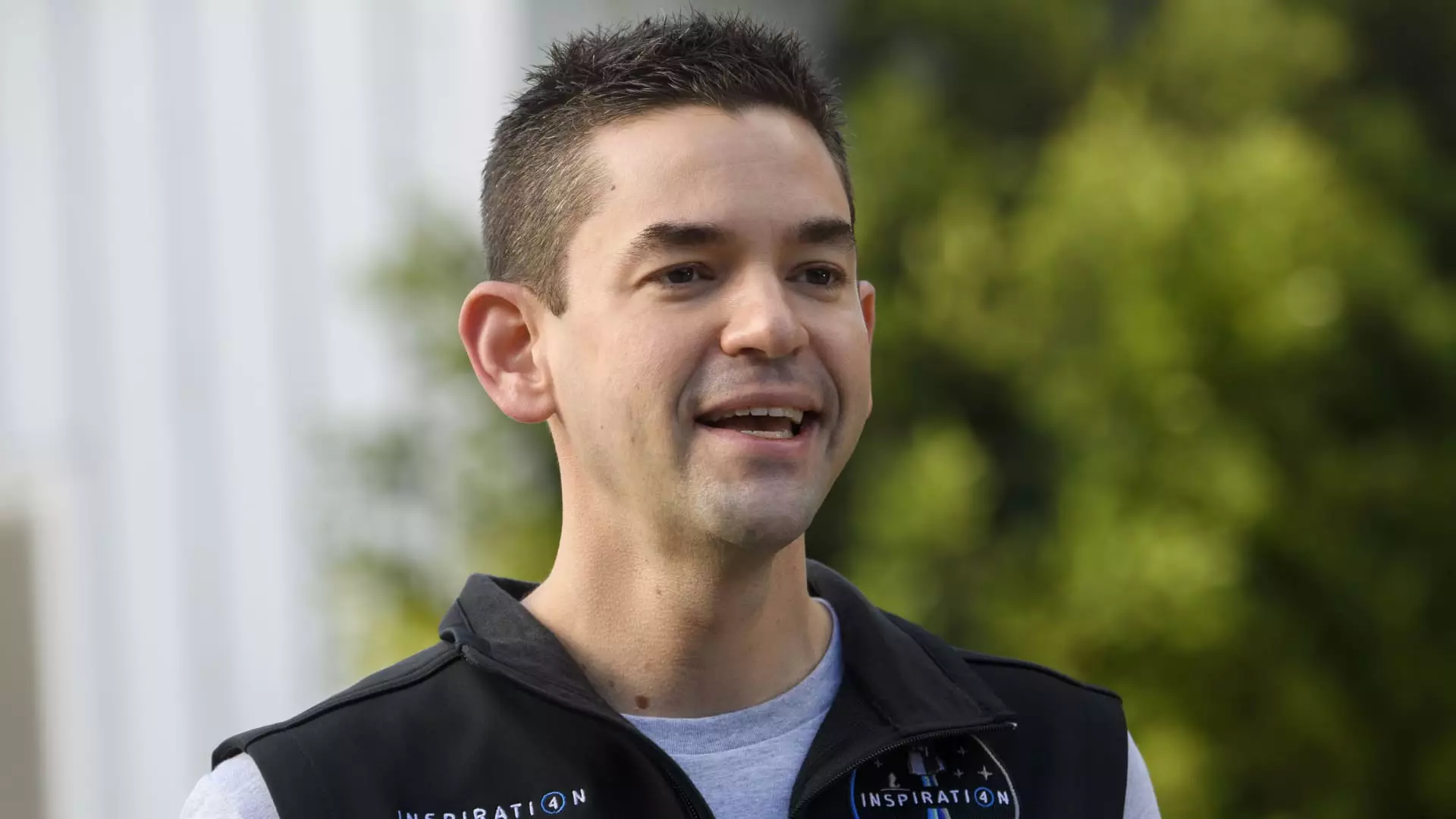Jared Isaacman, the founder of Shift4 Payments, has had his share of unparalleled experiences, ranging from launching groundbreaking ventures in fintech to embarking on audacious space missions. However, his recent foray into politics, which saw his nomination for a NASA position quickly withdrawn by President Donald Trump, encapsulates both the thrill and volatility of maneuvering within the political sphere. This episode is less about the failed nomination and more about Isaacman’s outlook—the way he perceives setbacks and pivots toward future opportunities.
His candid admission that this “brief stint in politics was a thrilling experience” speaks volumes about his character. Many individuals, when faced with sudden rejection, might retreat and wallow in disappointment, but Isaacman’s approach appears to be the polar opposite. Instead, he reflects on this uncertain adventure with a sense of pride, framing it as a valuable chapter in his life that he would choose to repeat, even with the known outcome of rejection looming large.
Financial Endeavors in the Spotlight
As he steps down from the CEO position at Shift4 Payments, moving into an executive chairman role instead, Isaacman reinforces his commitment to the company he founded at the young age of sixteen. This transition was anticipated, contingent on the confirmation of his nomination, but the journey he has undertaken alongside well-known figures like Elon Musk has added an unexpected layer of complexity.
Isaacman’s shift in position is emblematic of a more significant narrative about leadership adaptability. By fostering fresh blood in his company’s governance structure, namely in the form of Taylor Lauber, appointed as CEO, he appears to signal a deliberate intention to keep the company innovative and nimble, particularly in an ever-evolving tech landscape. This approach hints at a forward-thinking strategy aimed at balancing personal ambitions while ensuring the vitality of his company.
Political Overtones and Musk’s Influence
In the backdrop of Isaacman’s political aspirations was an intricate web of relationships with influential figures, particularly Elon Musk, who has transitioned from supportive ally to outspoken critic of the Trump administration’s policies. Such dynamics illuminate the complexities of political affiliation and the often-blurry lines between personal alliances and professional trajectories.
Isaacman allegedly believes that the timing of the withdrawal could be tied to Musk’s shifting stances, particularly his criticisms of the proposed tax-cut bill that Trump ardently advocates. Isaacman’s assertion during a podcast episode that he considered himself “right-leaning” and saw a paradoxical relationship between his previous political donations and Trump’s decision-making illustrates the nuanced understanding he holds about governance and allegiances.
Moreover, it is worth examining the implications of Isaacman’s investment in SpaceX alongside his own journey into political candidacy. When a figure in the business world stands to gain from political associations yet faces sudden rejection, it poses questions about how personal decisions affect professional outcomes. Are such nominations merely tokens of ambition, or do they reflect deeper political currents at play?
Embracing Change and Looking Ahead
The political chessboard is notoriously unpredictable, and Isaacman’s experience drives home the importance of adaptability in the face of uncertainty. While it may be tempting to oscillate between revenge and resignation after a political setback, Isaacman’s ability to pivot speaks to a core strength that many entrepreneurs and leaders must cultivate. His resilience is a testament to how individuals can redefine their trajectories, even when refusal casts a long shadow over their aspirations.
Isaacman’s commitment to his company, evident in his words expressing love for “this company, the strategy, and our team,” suggests that rather than retreating from disappointment, he is reinforcing the foundations of his entrepreneurial endeavors. As he embraces his new role, one can’t help but admire his tenacity in the face of challenges.
In a world where political affiliations can make or break opportunities, Isaacman’s journey serves as a reminder that the path to success is seldom linear. It invites a broader discussion on the nature of ambition, the interplay of politics in personal ambitions, and the importance of channeling outliers into constructive outcomes rather than viewing them as insurmountable obstacles. Isaacman will undoubtedly continue to navigate this complex relationship between his business and any future political aspirations with newfound insight and determination.

